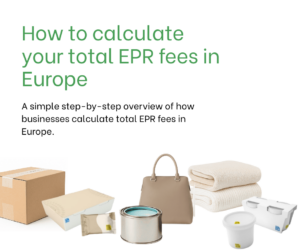General sales tax registration and collection requirements in the US
General sales tax registration and collection requirements in the US
Marketplace Approaches to Sales Tax: A Comparative Analysis
One of the most significant trends in US state sales tax laws is the expansion of economic nexus thresholds. This means that online sellers are required to register for sales tax in states where they don’t have a physical presence, but exceed specific sales or transaction thresholds. This trend has made it increasingly complex for online businesses to comply with sales tax laws.
Marketplaces have become a significant channel for online sales, and with that comes the complexity of sales tax compliance. Here’s a breakdown of how different marketplaces approach sales tax:
Amazon
- Amazon is a major player in the US and many other countries. They are required to collect and remit sales tax on behalf of third-party sellers in many jurisdictions, simplifying the process for sellers.
- Amazon provides tools and resources to help sellers understand their tax obligations and manage their tax compliance.
- Amazon calculates and remits sales tax on behalf of sellers, reducing the administrative burden
eBay
- eBay generally requires sellers to register for and collect sales tax in states where they have economic nexus.
- eBay provides tools and resources to help sellers understand their tax obligations and calculate sales tax.
- In some states, eBay may collect and remit sales tax on behalf of sellers, depending on specific regulations.
Etsy
- Etsy typically requires sellers to register for and collect sales tax in states where they have economic nexus.
- Etsy provides limited tax guidance and tools compared to larger marketplaces.
- Etsy may collect and remit sales tax in some states, but sellers should consult Etsy’s specific guidelines.
Other Notable Trends:
- Many states have enacted laws requiring online marketplaces to collect and remit sales tax on behalf of third-party sellers. This simplifies compliance for sellers but can increase their tax burden.
- These laws impose sales tax obligations on remote sellers who exceed certain thresholds, even if they don’t have a physical presence in the state.
- States are increasingly taxing digital products and services, such as software, digital downloads, and streaming services.
General sales tax registration and collection requirements in the US:
- Economic Nexus: States have implemented economic nexus laws, which require sellers to register and collect sales tax if they exceed certain sales or transaction thresholds.
- Marketplace Facilitator Laws: These laws require online marketplaces to collect and remit sales tax on behalf of third-party sellers.
- Physical Presence Nexus: Traditional nexus requires a physical presence in a state (e.g., warehouse, office, or employee).
Additional Considerations:
- Some states offer sales tax holidays for specific products or during certain periods.
- Many states have local sales taxes that can vary by county and city.
- These laws impact businesses that sell to customers in states where they don’t have a physical presence.
By staying informed about the latest tax laws and regulations, you can ensure compliance and avoid potential penalties.By understanding the specific tax obligations associated with each marketplace and utilizing available tools and resources, online sellers can navigate the complexities of sales tax and maintain compliance.
| State | Registration Requirement | Tax Collection Responsibility |
| Alabama | Economic Nexus ($250,000 in sales or 200 transactions) | Seller |
| Alaska | Economic Nexus ($100,000 in sales or 200 transactions) | Seller |
| Arizona | Economic Nexus ($100,000 in sales) | Seller |
| Arkansas | Economic Nexus ($100,000 in sales or 200 transactions) | Seller |
| California | Economic Nexus ($500,000 in sales or 200 transactions) | Seller |
| Colorado | Economic Nexus ($100,000 in sales or 200 transactions) | Seller |
| Connecticut | Economic Nexus ($250,000 in sales or 200 transactions) | Seller |
| Delaware | No state sales tax | N/A |
| District of Columbia | Economic Nexus ($100,000 in sales) | Seller |
| Florida | Economic Nexus ($100,000 in sales or 200 transactions) | Seller |
| Georgia | Economic Nexus ($100,000 in sales or 200 transactions) | Seller |
| Hawaii | Economic Nexus ($100,000 in sales) | Seller |
| Idaho | Economic Nexus ($100,000 in sales) | Seller |
| Illinois | Economic Nexus ($100,000 in sales or 200 transactions) | Seller |
| Indiana | Economic Nexus ($100,000 in sales or 200 transactions) | Seller |
| Iowa | Economic Nexus ($100,000 in sales or 200 transactions) | Seller |
| Kansas | Economic Nexus ($100,000 in sales) | Seller |
| Kentucky | Economic Nexus ($100,000 in sales) | Seller |
| Louisiana | Economic Nexus ($100,000 in sales) | Seller |
| Maine | Economic Nexus ($100,000 in sales or 200 transactions) | Seller |
| Maryland | Economic Nexus ($100,000 in sales or 200 transactions) | Seller |
| Massachusetts | Economic Nexus ($100,000 in sales) | Seller |
| Michigan | Economic Nexus ($100,000 in sales or 200 transactions) | Seller |
| Minnesota | Economic Nexus ($100,000 in sales or 200 transactions) | Seller |
| Mississippi | Economic Nexus ($100,000 in sales) | Seller |
| Missouri | Economic Nexus ($100,000 in sales) | Seller |
| Montana | No state sales tax | N/A |
| Nebraska | Economic Nexus ($100,000 in sales) | Seller |
| Nevada | Economic Nexus ($100,000 in sales) | Seller |
| New Hampshire | No state sales tax | N/A |
| New Jersey | Economic Nexus ($100,000 in sales) | Seller |
| New Mexico | Economic Nexus ($100,000 in sales) | Seller |
| New York | Economic Nexus ($100,000 in sales or 200 transactions) | Seller |
| North Carolina | Economic Nexus ($100,000 in sales or 200 transactions) | Seller |
| North Dakota | Economic Nexus ($100,000 in sales or 200 transactions) | Seller |
| Ohio | Economic Nexus ($100,000 in sales) | Seller |
| Oklahoma | Economic Nexus ($100,000 in sales) | Seller |
| Oregon | No state sales tax | N/A |
| Pennsylvania | Economic Nexus ($100,000 in sales) | Seller |
| Rhode Island | Economic Nexus ($100,000 in sales) | Seller |
| South Carolina | Economic Nexus ($100,000 in sales) | Seller |
| South Dakota | Economic Nexus ($100,000 in sales) | Seller |
| Tennessee | Economic Nexus ($100,000 in sales or 200 transactions) | Seller |
| Texas | Economic Nexus ($50,000 in sales) | Seller |
| Utah | Economic Nexus ($100,000 in sales) | Seller |
| Vermont | Economic Nexus ($100,000 in sales) | Seller |
| Virginia | Economic Nexus ($100,000 in sales) | Seller |
| Washington | Economic Nexus ($100,000 in sales) | Seller |
| West Virginia | Economic Nexus ($100,000 in sales) | Seller |
| Wisconsin | Economic Nexus ($100,000 in sales) | Seller |
| Wyoming | Economic Nexus ($100,000 in sales) | Seller |



